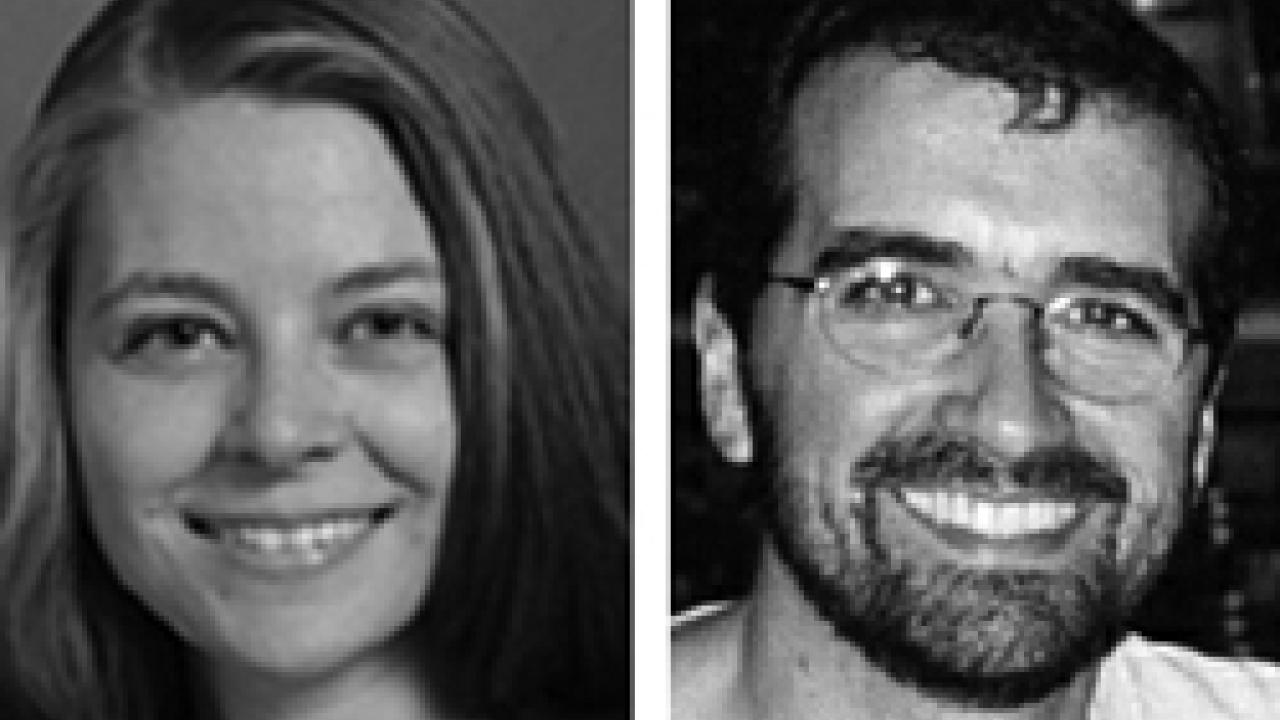Who missed the biggest economic meltdown since the Great Depression? What can economists learn from this humbling experience? Two UC Davis economists offer their perspectives:
Despite the perception that the economics profession failed to see it coming, Katheryn Niles Russ says some economists were quite vocal about the looming danger. A UC Davis assistant professor of economics, she has been talking in her classes since 2005 about the likelihood of things falling apart—just as they did in east Asia in the 1990s.
“This was not unexpected. There were big voices warning us of trouble,” said Russ, referring to Nobel Prize-winning columnist Paul Krugman of The New York Times and others like economist Nouriel Roubini who warned three years ago about the gathering economic storm.
Policymakers outside of academia are the ones who need to do some explaining, she believes. Between June 2007 and November 2008, Americans lost more than a quarter of their net worth.
“It is important to differentiate the actions of policymakers from an entire academic discipline,” said Russ, who studies international monetary policy, trade and finance. "Beyond this, a lot of money can be made within the space that one starts to suspect a bubble and the time it actually pops, so it is hard to slow it down early, despite singing canaries."
Russ believes political leaders did not want to do the “hard things” to reign in the excessive lending. “Perhaps since many policymakers and macroeconomists are homeowners, no one wanted to believe it was too good to be true?”
Economics: Not exactly scientific
A greater understanding of “bubbles” is imperative, she said. Acknowledging they exist is a good first step.
“That some theorists could argue with a straight face that bubbles do not exist was a dangerous convention when taken seriously in the policy world. But not all theorists think that bubbles do not exist just because we have not succeeded in modeling them yet,” Russ said.
Students, rather than get discouraged about economic soothsaying, are energized by wanting to learn more about fiscal crises, she said.
“They feel that understanding economics is more important than ever, since the recession is impacting their lives and their families in very real ways,” Russ said.
Like Russ, Oscar Jorda agrees that young people are seeking answers more than ever about the economy.
“The silver lining in the cloud is the renewed interest that students have in macroeconomics,” said Jorda, a UC Davis associate professor of economics who specializes in macroeconomics, central banking and monetary policy. “It makes the learning experience that much more enjoyable on both ends.”
As for the state of economics, he says the field is a “victim of its own success” and that it deserves a “wake up call.”
Macroeconomists, who study of the behavior and decision-making of large economies, often advise government officials on forecasting trends and developing national policies.
Lately, they have done well, and the long boom years gave these economists a high standing in policymaking circles. As Jorda explained, Americans may have enjoyed the good times for too long.
“When I began teaching at UC Davis in 1997, the undergraduates taking my class had never in their adult lives experienced what it meant to have unemployment, inflation or even a budget deficit,” he said.
The American economy seemed almost bulletproof in the last decade or so, able to weather massive loans and bailouts to outside entities, such as a $48 billion emergency loan to Mexico in 1995, Jorda said.
“To a large extent, this unprecedented success can be attributed to the influence that academic macroeconomic research has had on central bank behavior,” said Jorda, who has presented seminars to numerous U.S. Federal Reserve banks around the country and similar banks in Europe.
Central banks like the U.S. Federal Reserve are quasi-public corporations that regulate a nation’s money supply, set interest rates and lend money to banks or institutions. They are often advised by economic consultants inside and outside of government.
But all masters of the universe aside, a lesson from Econ 101 holds true—what goes up must come down.
'Perfect storm'
A “perfect storm” of events has led us to the current economic reality, Jorda said. A jump in oil prices from $60 a barrel to $120, an insufficient and poorly targeted stimulus by the Bush Administration in its waning days, and a downward spiraling mortgage market have all contributed to the problem. On top of this, the U.S. regulatory system was simply not up to the task of overseeing a rapidly evolving financial system, he added.
How should the discipline change?
Jorda does not believe macroeconomics suffers from a fundamental problem. Rather, it is an evolving academic discipline, and these recent setbacks are growing pains.
“It will incorporate this experience to develop tools that will help us understand what just happened and how best to prevent and deal with such scenarios in the future,” he said.
One challenge is how economists use sophisticated, highly technical mathematical models in finding answers to questions, he said. It is challenging, Jorda believes, to construct models with "sufficient texture to capture events we only observe" every 70 years.
“To be able to manipulate these representations of the economy, one has to make some convenient simplifications that sometimes take on a life of their own,” Jorda said.
Media Resources
Clifton B. Parker, Dateline, (530) 752-1932, cparker@ucdavis.edu
